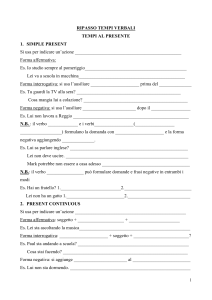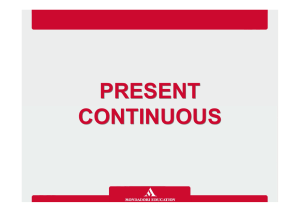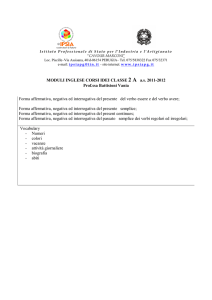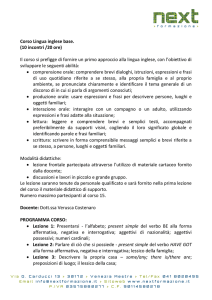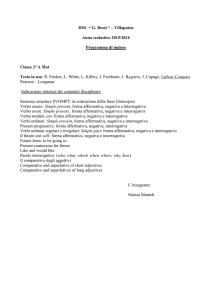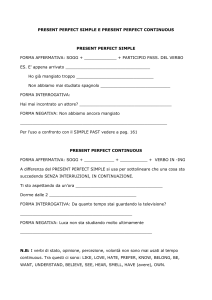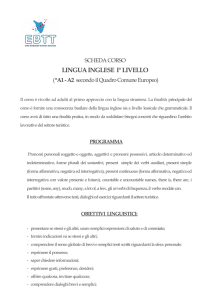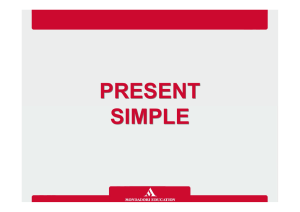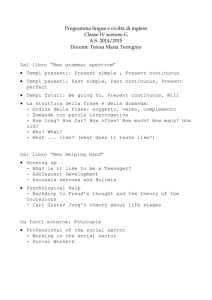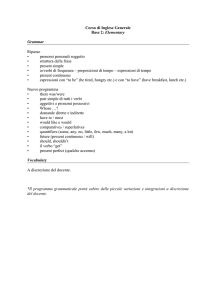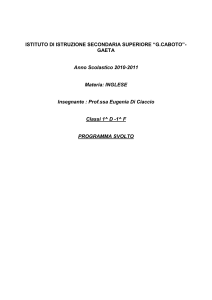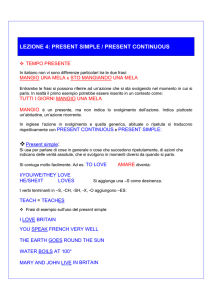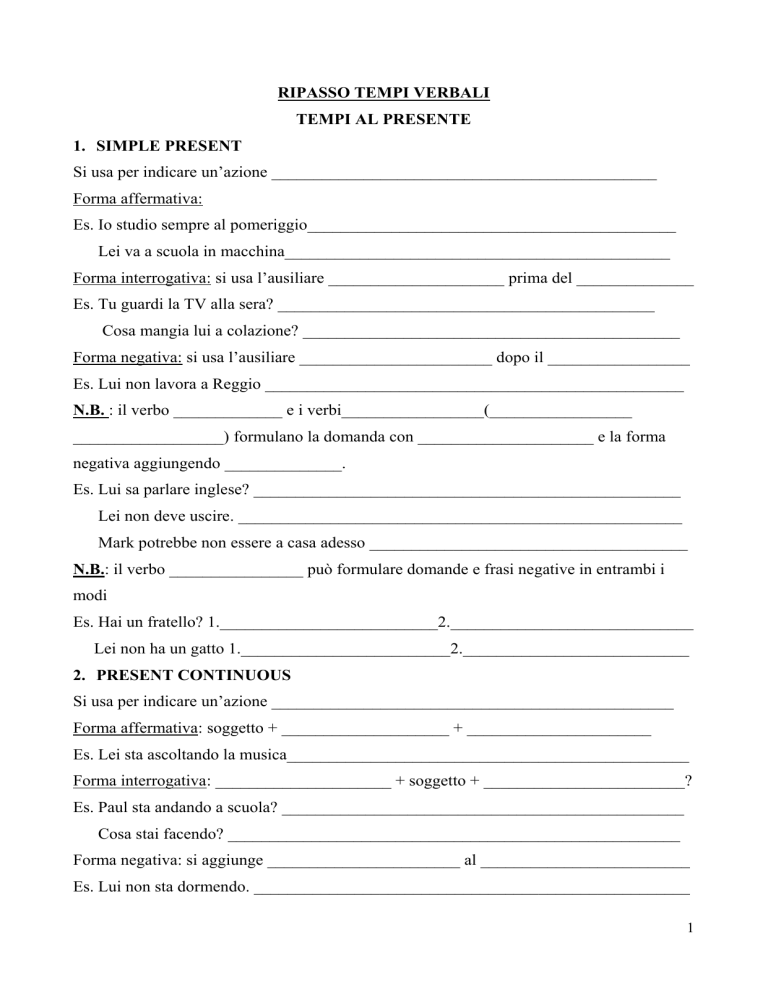
RIPASSO TEMPI VERBALI
TEMPI AL PRESENTE
1. SIMPLE PRESENT
Si usa per indicare un’azione ______________________________________________
Forma affermativa:
Es. Io studio sempre al pomeriggio____________________________________________
Lei va a scuola in macchina______________________________________________
Forma interrogativa: si usa l’ausiliare _____________________ prima del ______________
Es. Tu guardi la TV alla sera? _____________________________________________
Cosa mangia lui a colazione? _____________________________________________
Forma negativa: si usa l’ausiliare _______________________ dopo il _________________
Es. Lui non lavora a Reggio __________________________________________________
N.B. : il verbo _____________ e i verbi_________________(_________________
__________________) formulano la domanda con _____________________ e la forma
negativa aggiungendo ______________.
Es. Lui sa parlare inglese? ___________________________________________________
Lei non deve uscire. _____________________________________________________
Mark potrebbe non essere a casa adesso ______________________________________
N.B.: il verbo ________________ può formulare domande e frasi negative in entrambi i
modi
Es. Hai un fratello? 1.__________________________2._____________________________
Lei non ha un gatto 1._________________________2.___________________________
2. PRESENT CONTINUOUS
Si usa per indicare un’azione ________________________________________________
Forma affermativa: soggetto + ____________________ + ______________________
Es. Lei sta ascoltando la musica________________________________________________
Forma interrogativa: _____________________ + soggetto + ________________________?
Es. Paul sta andando a scuola? ________________________________________________
Cosa stai facendo? ______________________________________________________
Forma negativa: si aggiunge _______________________ al _________________________
Es. Lui non sta dormendo. ____________________________________________________
1
Traduci queste frasi.
1. Cosa fa Marco nel suo tempo libero? Lui suona la chitarra e va in piscina, gli piace molto
nuotare.
2. Cosa stai facendo? Sto andando a scuola, io vado sempre a scuola al martedì pomeriggio.
3. Cosa fa Susan? Lei di solito studia al pomeriggio, ma oggi sta giocando in giardino.
EXERCISE N. 1
Choose the present simple or present continuous of the verbs in brackets:
1. She _________________________________ (have) a bath every evening.
2. (He / eat) _________________________________ rice every day?
3. I (work) _________________________________ at the moment.
4. (He / come) _________________________________ to London often?
5. He (play) _________________________________ tennis now.
6. I _________________________________ (not / think) that’s a good idea.
7. It _________________________________ (be) cold today.
8. He (not / play) _________________________________ golf now.
9. _____________ (you / be) hungry? ___________________________ (you / want) a sandwich?
10. They (go) _________________________________ to a restaurant every Saturday.
11. She (not / go) _________________________________ to the cinema very often.
12. You usually (arrive) _________________________________ late.
13. He normally (eat) _________________________________ dinner at home.
14. (You / study) _________________________________ every night?
15. (They / work) _________________________________ late usually?
16. (She / work) _________________________________ at the moment?
17. A: What ________________ (you / do)? B: I __________________ (write) to my ex-boyfriend.
18. What _____________________________ (you / think) about the war in Siria?
RICORDA: i verbi di stato, opinione, percezione, volontà non sono mai usati al tempo
continuous. Tra questi ci sono:
LIKE, LOVE, HATE, PREFER, KNOW, BELONG, BE, WANT, UNDERSTAND,
BELIEVE, SEE, HEAR, SMELL, HAVE (avere), OWN.
2

